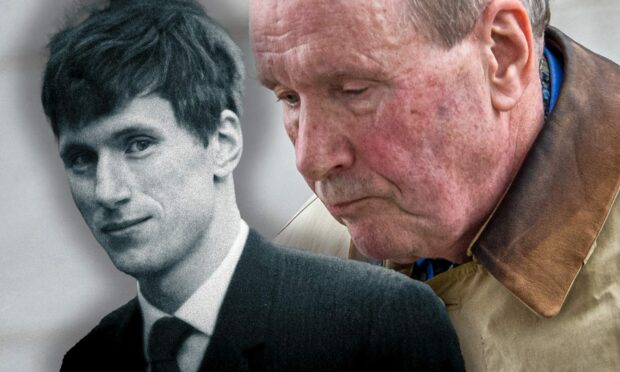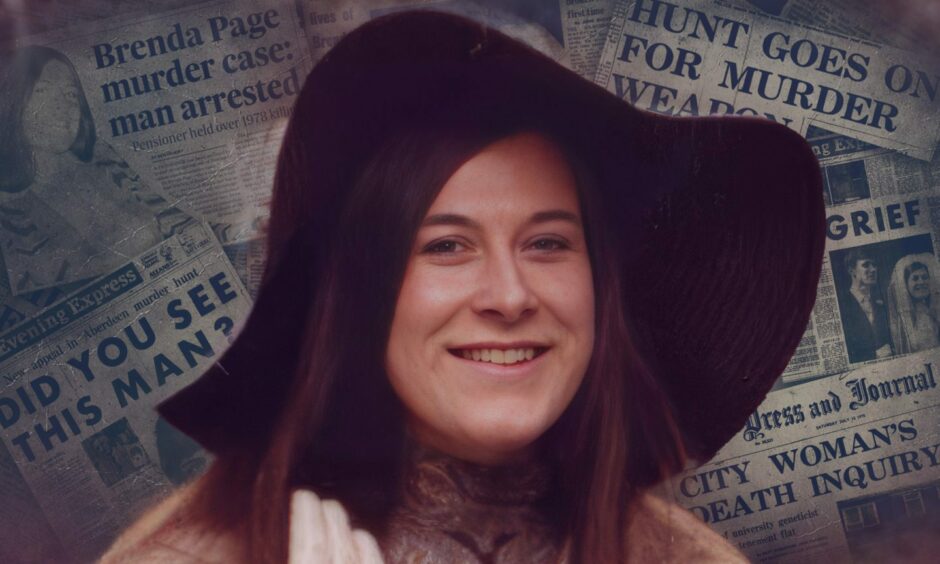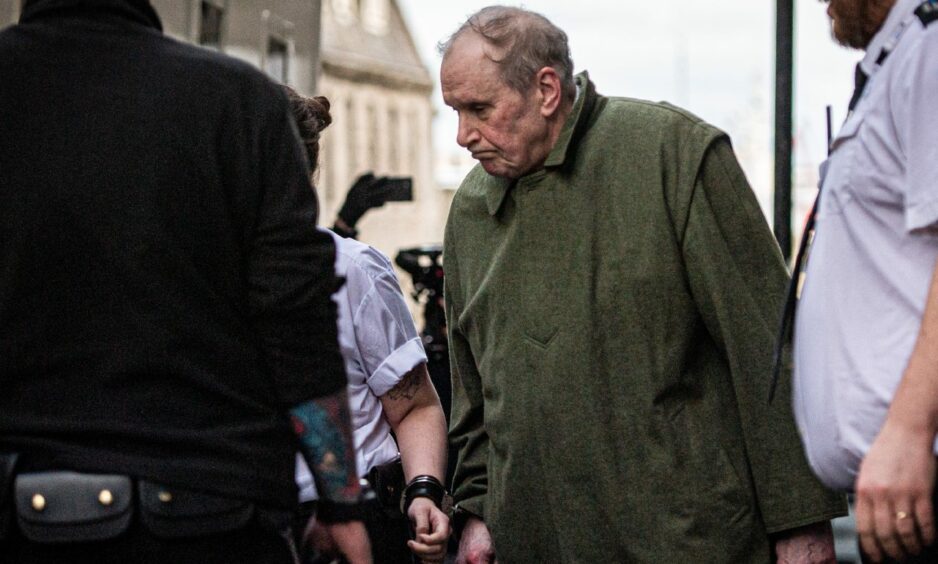The sister of murdered Brenda Page has hit out at the killer for trying to appeal his murder conviction.
Christopher Harrisson denied killing his 32-year-old ex-wife in Aberdeen in 1978.
The body of the Aberdeen University genetics expert was found on her blood-stained bed in her flat in Aberdeen’s Allan Street.
Harrisson, 82, was finally found guilty of the murder following a trial at the High Court in Aberdeen earlier this month.
He was jailed for life and ordered to serve a minimum of 20 years before he can apply for parole.
Harrisson has now launched a bid for freedom after instructing his legal team to challenge both his conviction and sentence.
His appeal bid was lodged at the High Court of Criminal Appeal in Edinburgh and a hearing will take place at a later date.
Dr Page’s sister Rita Ling, 88, said Harrisson was prolonging her family’s agony by refusing to admit his guilt.
She said: “This is very unwelcome news but I am not surprised because as far as he is concerned nothing is his fault.
“I was really hoping we could put it all behind us and I thought it was finished.
“It took such a long time for the case to come to court in the first place and we now face another wait before it is over.”
Cold case review secures conviction
Dr Page was subjected to a “sustained and vicious” attack at the hands of Harrisson in what became one of Scotland’s most notorious unsolved murders.
Police arrested Harrisson at the time but it was decided that there was not enough evidence to bring him to trial. However, the case was re-examined in 2015.
Using new scientific techniques, prosecutors were able to prove that Harrisson had beaten his former wife to death after he spent decades maintaining his innocence.
A minute flake of paint found on Dr Page’s bedroom window – which had been forced open – was matched to the paint on Harrisson’s Mini Traveller car.
DNA samples taken from Dr Page’s flat were examined using modern forensic techniques.
The court heard that one sperm sample was 590 million times more likely to have come from Harrisson rather than from any other male unrelated to him.
Harrisson had met Dr Page, who was principal of the genetics department at the University of Aberdeen’s medical school, while they were students at the University of Glasgow in 1970.
They married in 1972, but divorced five years later.
The trial heard that Dr Page lived in fear of Harrisson following their split, with prosecutors claiming he had been “consumed with rage and anger” and upset at her part-time work with an escort agency.
Dr Page sustained multiple head injuries after being repeatedly struck with a blunt implement.
A senseless act of violence
Lord Richardson, the judge, said that as a result of a “senseless act of violence”, Dr Page’s life had come to a “brutal and premature end” and her potential was left unrealised.
He told Harrisson: “It appears that you were stalking Brenda Page that night; forced entry to her flat by prising open her rear window while she was out and waited for her to return.
“You created a void in the lives of her mother, sister, nephews and friends, which could never be filled.
“Her potential as a brilliant scientist was wrecked forever by your violence.”
A spokesman for the Scottish Courts and Tribunals Service said: “We have received an intimation of intention to appeal against conviction and sentence along with an extension of time application.”
For all the latest court cases in Aberdeen as well as crime and breaking incidents, join our Facebook group.


